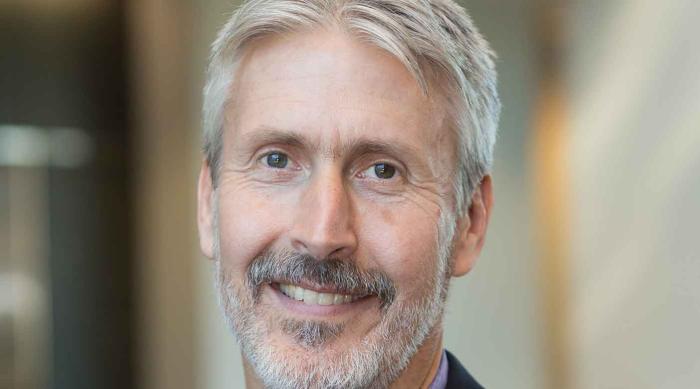
BME7900 Seminar Series - David Odde, PhD
Location
Weill Hall 226
Description
We welcome our next speaker in our series, Dr. David Odde. Dr. Odde is the Medtronic Professor of Engineering in Medicine at the University of Minnesota.
Modeling in medicine: Case studies in cancer and COVID-19
Abstract: Modeling and simulation is widely used in engineering for technology development, but rarely used for therapy development. In this seminar I will present two case studies of how we are using physics-based modeling to advance fundamental, translational, and clinical science. The first case study focuses on cancer, in particular glioblastoma, which remains a deadly cancer driven by invasion of tumor cells into the brain. Transcriptomic analyses have revealed distinct molecular subtypes, but mechanistic and targetable differences are not clear. Using a state-of-the-art immunocompetent mouse model for glioblastoma, we found that, as predicted by the motor-clutch model for cell migration (Chan and Odde, Science, 2008; Klank et al., Cell Rep, 2017), mesenchymal glioma cells are more spread, generate larger traction forces, and migrate faster in brain tissue compared to proneural cells. These findings open up new opportunities for subtype-specific therapies. In addition, our model enabled discovery of negative durotaxis, i.e. preferential migration toward softer environments, which will allow us to predict cancer progression with greater accuracy. The second case study focuses on mathematical modeling of SARS-CoV-2 replication. We found that that some steps, including protein translation, are especially good targets, while others, such as those mediating viral entry, were relatively poor targets. Remarkably, in the subsequent two years since we developed the model, we found that it has accurately predicted 7 out 7 drugs as recommended for or against in the NIH COVID-19 Treatment Guidelines. In addition, the model motivated a phase 3, double-blind, randomized, placebo-controlled clinical trial in the early outpatient setting for metformin (COVID-OUT; NCT04510194). We found a 42% reduction in hospitalization/ED visits in the first 14 days (aOR=0.58; 95% CI, 0.35 to 0.94). In addition, we found a 42% reduction in Long Covid (PASC) over a 10 month follow-up period (HR=0.58; 95% CI 0.38 to 0.88). Given that metformin is available globally, well-tolerated, and inexpensive ($0.48 per course of treatment), it could provide an important new tool for limiting the impacts of both acute and Long Covid world-wide.
Bio: David Odde trained as a chemical engineer at the University of Minnesota and Rutgers University, Odde joined the newly created Department of Biomedical Engineering at the University of Minnesota in 1999 where he is a professor and Associate Director for Strategic Research Initiatives in the Institute for Engineering in Medicine. In his research, Odde’s group builds computer models of cellular and molecular self-assembly and force-generation-dissipation dynamics, and tests the models experimentally using digital microscopic imaging of living cells ex vivo and in engineered microenvironments. His group seeks to bring an engineering approach that uses physics-based modeling and analysis to understand, predict, and control disease outcomes (oddelab.umn.edu). Dr. Odde is an elected Fellow of the American Institute for Medical and Biological Engineering (AIMBE), the Biomedical Engineering Society (BMES), the International Academy of Medical and Biological Engineering (IAMBE), and the American Association for the Advancement of Science (AAAS) and is the Director of the Physical Sciences in Oncology Center at the University of Minnesota (psoc.umn.edu), which is focused on modeling the mechanics of cancer cell migration in biologically relevant contexts.

